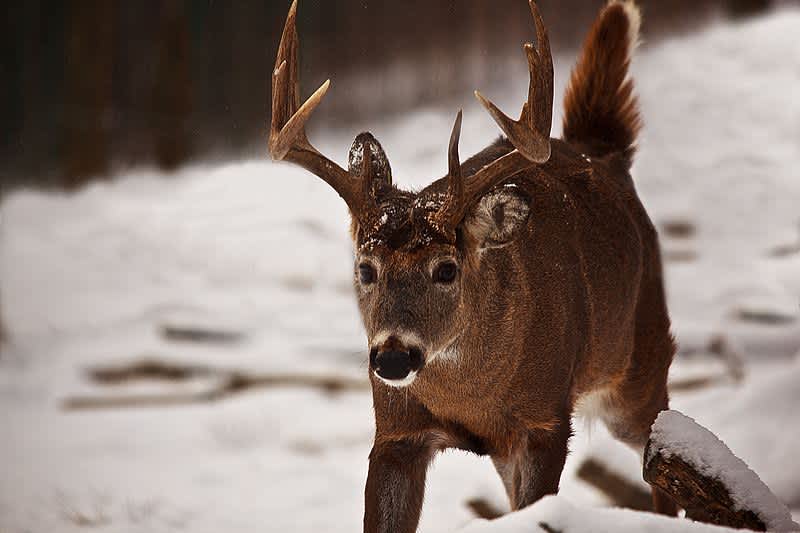North Carolina Sees Record Deer Harvest, EHD Fears Subside
OutdoorHub Reporters 04.25.14

North Carolina deer hunters harvested a record 188,130 deer in 2013-2014 season—the highest ever in the state’s history. According to the Asheville Citizen-Times, last season’s success can be attributed in part to the subsidence of epizootic hemorrhagic disease, or EHD. Biologists from the North Carolina Wildlife Resources Commission announced last year that they expected the presence disease to have little in the way of long-term effects, and hunters seem to have taken heart. Cold weather, food availability, and an increased number of hunters also contributed to last season’s record numbers.
“It was a decent season,” Chad Smith, the owner of Carolina Outdoors Unlimited, told the Citizen-Times. “I believe more hunters are getting into hunting, so the more hunters you have, the more that’s going to get killed.”
State biologists recorded a widespread outbreak of EHD among deer in 2012. Epizootic hemorrhagic disease is a viral infection that affects deer species and is often fatal. Clinical symptoms can appear as early as seven days after exposure, including excessive salivation, abnormal behavior, and eventually going into a shock-like state before death. The 2012 outbreak had the greatest impact in the western counties of Caldwell, Surry, and Wilkes, resulting in dramatically lower deer harvests. Despite this, officials said that the disease was not likely to have any long-lasting impacts. With more than 1.1 million deer across the state, biologists are assured that the species is in overall good health.
“Probably the most interesting thing we found was that young does, those that were one or two years old, appeared to be less impacted by the disease than older does and antlered bucks of all ages,” said WRC biologist Chris Kreh. “These young does will be at their peak reproductive age for the next few years which will give the herd substantial opportunity to grow.”
There are an estimated 243,500 hunters in North Carolina, including a growing number of archers. Last season also marked the first deer taken by a bowhunter to make it into the Boone and Crockett Club’s records. Tim Watkins of Stokes County shot a state record archery buck last November, which was panel-scored at 170 1/8 points. The Boone and Crockett Club records book accepts entries only over a minimum of 170 points.
Deer affected by the disease have not been proven unsafe for consumption, but some wildlife officials still recommend not eating deer with obvious signs of illness.

